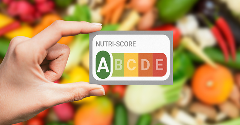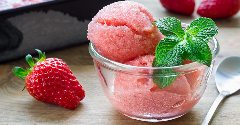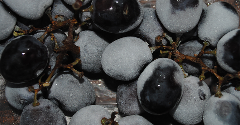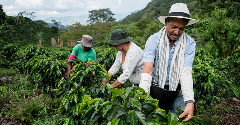News
IFIC: little confusion over plant-based dairy
16 Oct 2018A new survey by the International Food Information Council (IFIC) Foundation shows a low level of consumer confusion over nomenclature and basic differences between dairy and non-dairy.

As the U.S. Food and Drug Administration considers a proposal “to provide greater clarity on appropriate labeling of plant-based alternatives” to milk and dairy products, a new survey by the International Food Information Council (IFIC) Foundation shows a low level of consumer confusion over nomenclature and basic differences between the two.
According to the survey, about three-quarters of Americans understand that plant-based “milk” products do not actually contain cow’s milk (75% for soymilk and almond milk, 74% for coconut milk, 73% for rice milk and 72% for cashew milk). Fewer than 10% believe that any of those products contains cow’s milk, while the remainder say they don’t know (20%for cashew milk and rice milk, 18% for coconut milk, and 16% for soymilk and almond milk).Conversely, large majorities know that products labeled “whole milk” (90%), “chocolate milk” (85%), “nonfat milk” (78%) and “skim milk” (74%) contain cow’s milk, although that number falls to 48% for “lactose-free milk.”Consumers expressed similar awareness about whether various products labeled as milks or butters contained cow’s milk or plant-based ingredients. Cow’s milk was identified as an ingredient in chocolate milk by 84% of respondents, in organic milk by 78% and in butter by 77%, with only 8% or less believing that any of them contains plant-based ingredients. For lactose-free milk, 62% believe it contains cow’s milk and 14% cite plant-based ingredients.The survey also asked about consumers’ purchases in the past three months. Nearly half (45%) bought 2% milk, with 38% for whole milk, 30% for almond milk, 29% for chocolate milk, 19% for 1% milk, 16% for both skim milk and soymilk, and less than 10% for lactose-free milk or other nut- or grain-based milks.Of those who buy products marketed as milks, 62% purchase solely dairy, while 38%purchase non-dairy. Groups who are more likely than others to buy non-dairy products include people in the western United States (45%), consumers under 45 years old (43%), people of color (48%, compared to 32% of white people) and those with a college education (44%, compared to 30% of non-college graduates).Related news

UK to ban junk food TV advertisements before 9pm
3 Oct 2024
In a bid to reduce childhood obesity, the UK government has introduced a policy, coming into effect on 1 October 2025, banning junk food advertising on television before the 9pm watershed.
Read more
Which food and beverage brands made TIME’s Most Influential Companies list?
2 Oct 2024
Chickpea pasta, prebiotic sodas, food boxes, non-alcoholic beer, and a soil carbon marketplace are the specialties of the five food and beverage brands that earned a spot on TIME’s 2024 list.
Read more
New environmental food scoring standards emerge
30 Sep 2024
EIT Food and Foundation Earth collaborate to launch environmental food scoring for products entering the global supply chain.
Read more
Danone removes NutriScore from products
20 Sep 2024
Following an algorithm update that gives some of its sweetened drinks a worse score, Danone has removed the front-of-pack label, NutriScore, from all of its products – putting profit before public health, say campaigners.
Read more
Nestlé develops a new fat reduction method for dairy ingredients
26 Aug 2024
A Brazil-based Nestlé research and development team has developed a way to reduce the fat in milk powder by as much as 60%, without impacting the key characteristics that consumers enjoy.
Read more
Better Juice expands its range to sorbets
16 Aug 2024
Food tech startup Better Juice has developed a technology to reduce the sugar content in fruit sorbets. The process retains the natural vitamins, minerals, and flavours of fruit, while offering manufacturers an easy-to-implement and scalable solution t...
Read more
German study reveals high sugar, fat, and salt levels in children's foods
13 Aug 2024
The food industry is making slow progress in reducing the high levels of sugar, fat, and salt in German food and beverage products marketed to children, according to the Max Rubner Institute (MRI).
Read more
Swedish court overturns prohibition on winery’s use of imported frozen grapes
12 Aug 2024
Swedish company Drood Winery has successfully challenged the Swedish Food Agency’s decision to prohibit the production and sale of their product made from frozen grapes imported from Iran.
Read more
Paris Olympics: Food and beverage brands champion health, fun, and sustainability
5 Aug 2024
Food and beverage brands are aligning with the Paris Olympics 2024 Food Vision, which emphasises sustainability, local sourcing, and plant-based diets.
Read more
The coffee supply chain is failing farmers, says Solidaridad
30 Jul 2024
The coffee industry’s economic model means its profits do not reach farmers, despite there being enough value to be shared all along the supply chain, according to a new report by Solidaridad Network and IDH.
Read more